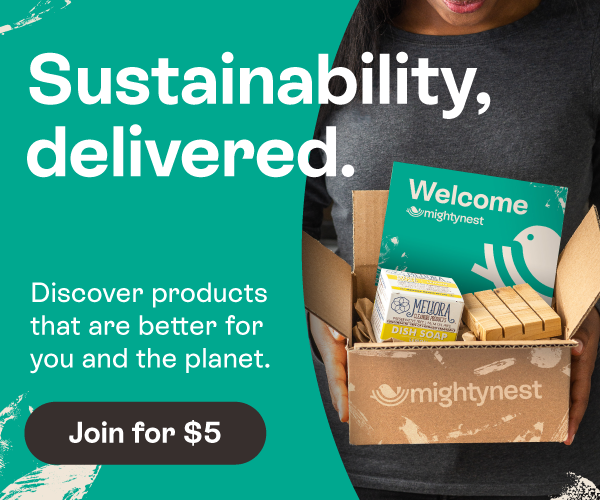
Ok ladies. If you've been thinking or even wondering about doing away with your conventional feminine care (ok... period) products, you may want to take a closer look at why this is a very good idea. For starters, not all feminine care products are created equal.
Let's start with conventional feminine products. Most common sanitary pads sold today contain a blend of chlorine-bleached pulp, polypropylene, polyacrylates and plastic. Tampons are manufactured from rayon fibers, viscose and the "leftover" stuff from cotton (stems, leaves and other fibers) called gin trash. Gin trash has concentrated levels of pesticides (cotton is typically sprayed with highly toxic pesticides), making the gin trash illegal to feed to cattle, so....it's used to make tampons!
Wait, it gets worse. These feminine products then go through a chlorine bleaching process for gloriously whiter whites!?! This process results in the production of dioxin! An organochlorine (DDT, PCB, Agent Orange) and considered by the EPA as a known carcinogen. Dioxin is especially linked to breast cancer, immune system suppression, endometriosis, pelvic inflammatory disease, reduced fertility and changes in hormones. And further, the FDA has required no independent testing to verify manufacturers data on dioxin levels.
The EPA claims there is no reason to pinpoint an "acceptable amount" of dioxin because dioxin bioaccumulates and can remain in the body for 20 or 30 years after exposure. While 70% of North American women use tampons, over the course of her life, that accounts for the use of 16,800 tampons. Needless to say, that's a lot of bioaccumulating. The EPA explains that, "the health effects associated with dioxins depend on a variety of factors including: the level of exposure, when someone was exposed, and for how long and how often someone is exposed."
And also important not to forget, these chemicals are coming into contact with some of the most absorbent tissues in the body. And this is even more of a concern for younger girls who haven't yet fully developed antibodies to the bacteria toxins (Staphylococcus aureus) that put them at risk for Toxic Shock Syndrome. And further, TSS toxins breed on the synthetic fibers like rayon and and viscose that are present in conventionally made tampons.
So, what are the safe alternatives?
Disposable Products: To be fair, not everyone is open to reusable feminine products and it's likely that a teenager would feel more comfortable starting out with disposable (and biodegradable) ones instead. But surely, it makes sense to establish a healthy routine early on by using chemical-free feminine products.
 Natracare makes both disposable and biodegradable pads and tampons that are made from only certified organic 100% cotton. Natracare products are non-chlorine bleached and do not contain synthetic materials, such as rayon, or chemical additives such as binders or surfactants. By choosing certified organic cotton feminine products, you can ultimately remove the risk of direct exposure to residues from chemical pesticides and fertilizers used on traditional cotton.
Natracare makes both disposable and biodegradable pads and tampons that are made from only certified organic 100% cotton. Natracare products are non-chlorine bleached and do not contain synthetic materials, such as rayon, or chemical additives such as binders or surfactants. By choosing certified organic cotton feminine products, you can ultimately remove the risk of direct exposure to residues from chemical pesticides and fertilizers used on traditional cotton.
Reusable Products: For those who are comfortable with reusable products, we have options for you to consider. In addition to the obvious environmental benefit of producing minimal waste, there is also a substantial cost savings as well. After the initial investment, the perks are clearly felt when you are relieved from buying disposable products month after month.
 The Diva Cup: Made with medical-grade silicone, this menstrual cup is latex-free, plastic-free and BPA-free! Perfect for traveling, exercising, camping, overnight use or just in place of regular use of tampons, but without the cost or purchasing over and over again.
The Diva Cup: Made with medical-grade silicone, this menstrual cup is latex-free, plastic-free and BPA-free! Perfect for traveling, exercising, camping, overnight use or just in place of regular use of tampons, but without the cost or purchasing over and over again.
How does it work? The DivaCup is an internally worn menstrual cup that can be worn safely for up to 12 hours before emptying, washing and reinserting. It can be used for light or moderate flows and if needed, can be emptied more often to accommodate heavy flows.
Lunapads also makes a botanically-based, pH balanced, all natural cleanser called the Diva Wash. This specifically designed wash helps to protect the integrity of the silicone material in the DivaCup. The DivaWash does not contain parabens, sulfates or petrochemeicals, and is a concentrated formula, so you can use very little for full effect.
For more information regarding the use of a diva cup, watch this video. 
And for a reusable pad, the makers of the diva cup have also made Lunapads panty liners. Made from 100% organic cotton, this cloth panty liner is suitable for daily use for spotting, very light menstrual flow or as a backup leak-protection when using a tampon or diva cup. These mini cloth panty liners are the thinnest, most breathable option and are meant to be used on their own.
Unlike most disposable pantyliners, Lunapads do not contain any added chemicals, gels, or super absorbent polymers. Luna pads will last upwards of 5 years. For more information in caring for your luna pad, watch this video.
Have you tried any of these feminine care products?

